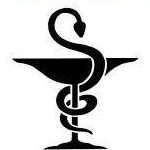
Pharmacists are medical professionals who guide patients in making efficient medication use. This Code, which was developed and approved by pharmacists, strives to clearly state the principles that underpin all of the work that pharmacists conduct. These guidelines were created to give pharmacists direction while dealing with patients, healthcare professionals, and the general public. They are built around moral principles and values.

Mahadev Lal Schroff: father of Indian pharmacy education
Late Mahadev Lal Schroff itroduced bachelor and master courses in discipline of pharmaceutical sciences in India and that’s why he is known as the Father of Indian Pharmacy Education. He edited first “Indian Journal of Pharmacy” and he was 1st vice-president of Pharmacy council of India (PCI). He formed the Indian pharmaceutical congress association (IPCA).
❖ Who is a pharmacist?
➢ A pharmacist strives to improve each patient’s health in a discreet, attentive, and considerate manner. Concern for the patient’s welfare is at the core of a pharmacist’s professional activity. A pharmacist takes into account both the patient’s stated needs and those established by health science when doing this. A pharmacist is committed to upholding the patient’s dignity. A pharmacist is focused on providing the patient with private and confidential care with a caring attitude and sympathetic mindset.
➢ Each patient’s freedom and dignity is important to pharmacists. By enlisting clients in decision-making regarding their health, a pharmacist promotes the right to self-determination and respects the value of each individual. When speaking with patients, a pharmacist uses clear language. A pharmacist always respects the unique cultural and personal preferences of each patient.
➢ A pharmacist behaves honourably and ethically in business interactions. They have a responsibility to speak the truth and behave in accordance with their conscience. A pharmacist abstains from engaging in discriminatory practices, engaging in conduct at work that impairs professional judgement, and taking activities that jeopardize commitment to their patients’ best interests.
➢ A pharmacist has a responsibility to stay up to date on current knowledge and abilities as new medications, tools, and technology are produced and as medical understanding increases.
➢ A pharmacist appreciates and acknowledges the abilities of their co-workers and other medical specialists. When necessary, a pharmacist recommends the patient to another healthcare provider or colleague for advice. A pharmacist is aware that the views and values that other health professions and their co-workers apply to patient care may vary.
➢ A pharmacist satisfies the needs of the individual, the neighbourhood, and society. The primary duty of the pharmacist is to individual patients. However, a pharmacist’s duties could extend beyond them to the wider society and community. The pharmacist responds effectively in these situations because she is aware of her responsibilities.
➢ A pharmacist demands justice in the distribution of medical resources. A pharmacist strikes an equal balance between the needs of society and patients while allocating resources for healthcare.
Pharmaceutical Laws: It is related to the production, marketing, and usage of pharmaceuticals. These laws cover things like safety regulations to safeguard the public from dangerous side effects, intellectual property rights to safeguard drug producers’ research, prohibitions on public drug promotion, and prescription and distribution guidelines.
Ethic: It means ethical standards. A profession’s code of ethics or rules govern activities and establish expectations for every one.
Pharmaceutical moral code: This refers to the morals relating to the practice of pharmacy.
Morality: Morality is the quality of one’s actions and consciousness.
Law: The laws that apply to everyone in a state or country are known as the law.
❖ Ethical Rules for Human conduct that a state or country’s citizens must follow:
Rules that a profession uses to control behaviour and establish standards for everyone. If a rule is breached, the offender might be punished by a fine or jail. The professional body may revoke a violator’s professional rights if rules are breached. Principles of Conduct Standards of Law A person may be prohibited from injuring another person by law but it cannot compel him to assist his neighbour in an emergency. The purpose of ethics is to assist neighbours. It is against the law to sell drugs that are misbranded or contaminated. It is unethical to sell medications at a lower price than a nearby pharmacist.
ETHICAL GUIDELINES FOR PHARMACISTS:
PCI developed the code of pharmaceutical ethics for the instruction of Indian pharmacists. The pharmacist is guided by the code of pharmaceutical ethics in how he should act with regard to: His/Her position, She/He works in Her/His line of work which is pharmacy a career in medicine. Following are the guidelines for pharmacists:-
➢ The scope of pharmaceutical services also includes being prepared with emergency supplies on hand at all times. This entails the prompt provision of this kind of often needed medication. A relatively full pharmaceutical service should be offered when a location is opened as a pharmacy and registered in accordance with legal criteria.
➢ Conduct of Pharmacy: All signs, notices, and descriptions, including their size, appearance, and language, text on business stationery, and similar signals should be controlled. The fact that pharmacy practice is being done in the establishment should be obvious to the general population. The settings aesthetic need to convey the pharmacy’s professional demeanour. A pharmacy should be located in a state that permits this in order to reduce needless risk, mistake, or unintentional contamination in the preparation, dispensing, and transportation of pharmaceuticals.

➢ Handling of Prescriptions: The pharmacist shouldn’t even appear surprised or concerned when they get a prescription because doing so might make patients or their representatives uneasy and lead to them losing faith in the doctor. whenever a prescription is made available for filling. A pharmacist must accept it without hesitation or commenting on the benefits and drawbacks of its therapeutic efficacy. A pharmacist is not permitted to add, delete, or substitute any components in a prescription without the prescriber’s consent, unless the modification is urgent or urgently required for the practice of pharmacy and has no effect on how the recipe functions therapeutically.In order to avoid upsetting clients or revealing personal information, replies to concerns concerning prescriptions should be delivered with the utmost care and discretion.
➢ Case management: While it is crucial to act in the patient’s best interest when a pharmacist re-fills a prescription, he or she should only adhere to the prescriber’s instructions and should advise clients to use medicines or remedies strictly in accordance with the doctor’s intention as noted on the prescription. Under no circumstances should this be carried out in a manner that would jeopardize the prescriber’s good name. If there is any obvious error in the prescription due to an omission, incompatibility, or overdose, it should be returned to the doctor for correction or approval of the change requested.

➢ Handling of Drugs: A pharmacist should use extreme caution while handling medications used for addictive or other harmful reasons. Always utilize readily available medications and pharmaceuticals of standard quality. He ought never to fill his prescriptions with fake, inferior, or unethical medications. Every effort should be made to accurately distribute a prescription by weighing and measuring all components with the use of scales and measures in the appropriate proportions: Visual estimates should not be used.

